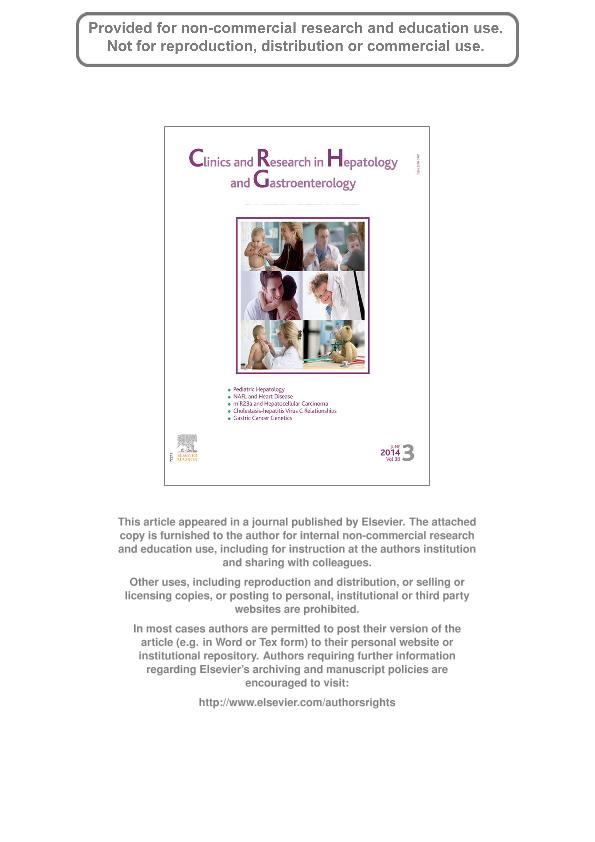Artículo
Glutathione S-transferase gene polymorphisms in celiac disease and their correlation with genomic instability phenotype
Fundia, Ariela Freya ; Weich, Natalia
; Weich, Natalia ; Crivelli, Adriana; La Motta, Graciela; Larripa, Irene Beatriz
; Crivelli, Adriana; La Motta, Graciela; Larripa, Irene Beatriz ; Slavutsky, Irma Rosa
; Slavutsky, Irma Rosa
 ; Weich, Natalia
; Weich, Natalia ; Crivelli, Adriana; La Motta, Graciela; Larripa, Irene Beatriz
; Crivelli, Adriana; La Motta, Graciela; Larripa, Irene Beatriz ; Slavutsky, Irma Rosa
; Slavutsky, Irma Rosa
Fecha de publicación:
01/2014
Editorial:
Elsevier Masson
Revista:
Clinics and Research in Hepatology and Gastroenterology
ISSN:
2210-741X
Idioma:
Inglés
Tipo de recurso:
Artículo publicado
Clasificación temática:
Resumen
Background and objective: Genomic instability and reduced glutathione S-transferase (GST) activity have been identified as potential risk factors for malignant complications in celiac disease (CD). In this study, we assessed the possible influence of GST polymorphisms on genome instability phenotypes in a genetically characterised group of celiac patients from previous studies. Methods: The deletion polymorphisms in GSTM1 and GSTT1 genes and the single-nucleotide polymorphism GSTP1 c.313A>G were genotyped using PCR in a set of 20 untreated adult patients with a known genomic instability phenotype and 69 age- and sex-matched healthy individuals. Results: The frequencies of variant genotypes in patients were GSTM1-null (30%), GSTT1-null (5%), GSTP1-AG (60%) and GSTP1-GG (15%), and they showed no differences from controls. No significant differences were found in the genotype distribution based on telomere length. Cases with GSTM1-null genotype (83%) and microsatellite stability were more frequent than those with genomic instability. Moreover, carriers of GSTP1-variant genotype (73%) and stable phenotype were significantly increased compared to unstable patients (27%) (P=0.031). No differences were found according to the clinical-pathological characteristics of celiac cases. Conclusions: No association between GST polymorphic variants and celiac-associated genomic instability was proven in our cohort. Future studies should explore the usefulness of other biomarkers to distinguish celiac patients who are susceptible to cancer development.
Archivos asociados
Licencia
Identificadores
Colecciones
Articulos(IMEX)
Articulos de INST.DE MEDICINA EXPERIMENTAL
Articulos de INST.DE MEDICINA EXPERIMENTAL
Citación
Fundia, Ariela Freya; Weich, Natalia; Crivelli, Adriana; La Motta, Graciela; Larripa, Irene Beatriz; et al.; Glutathione S-transferase gene polymorphisms in celiac disease and their correlation with genomic instability phenotype; Elsevier Masson; Clinics and Research in Hepatology and Gastroenterology; 38; 3; 1-2014; 379-384
Compartir
Altmétricas



